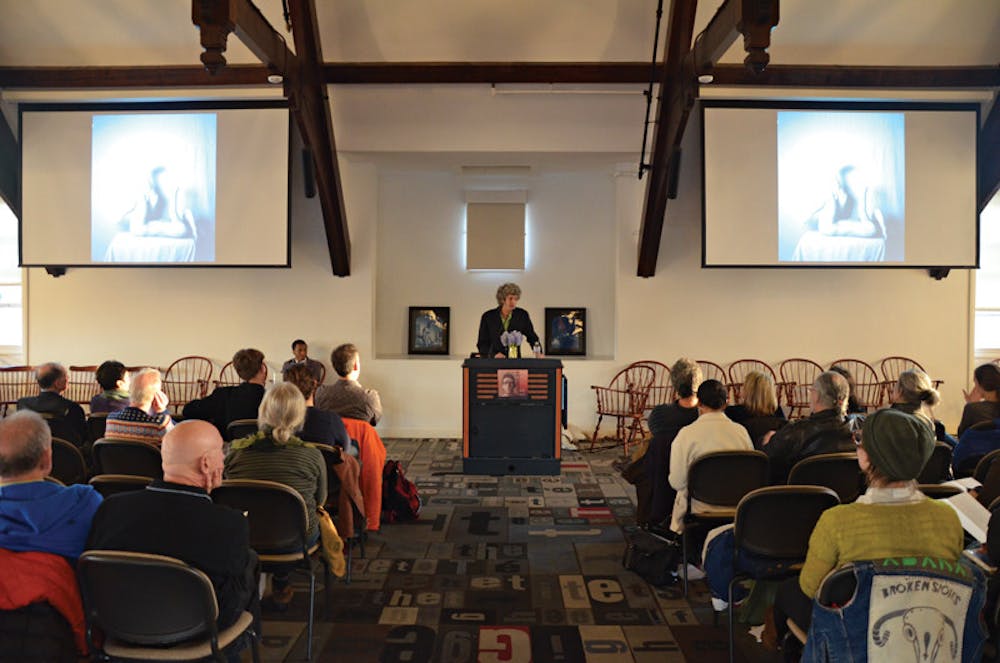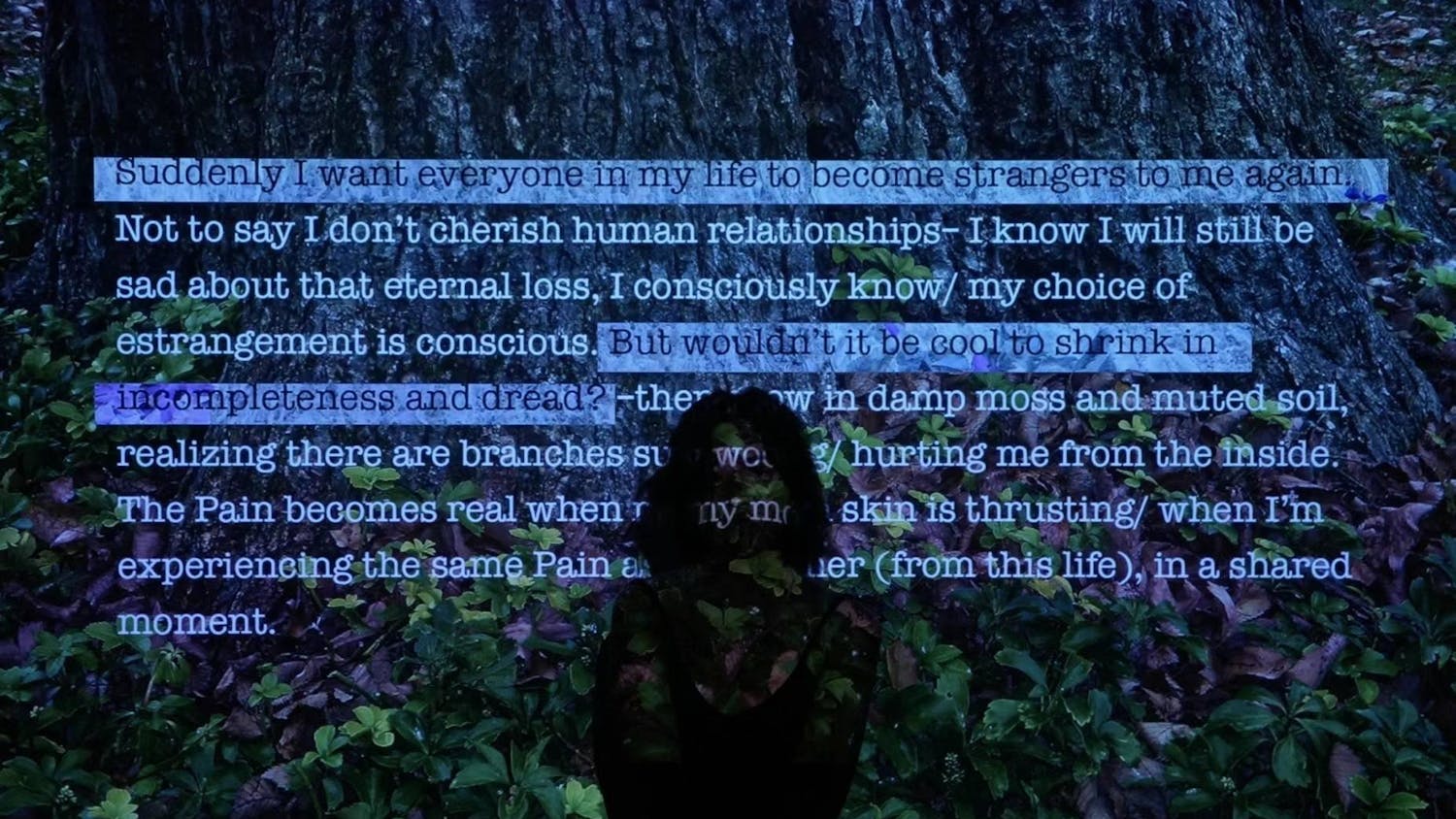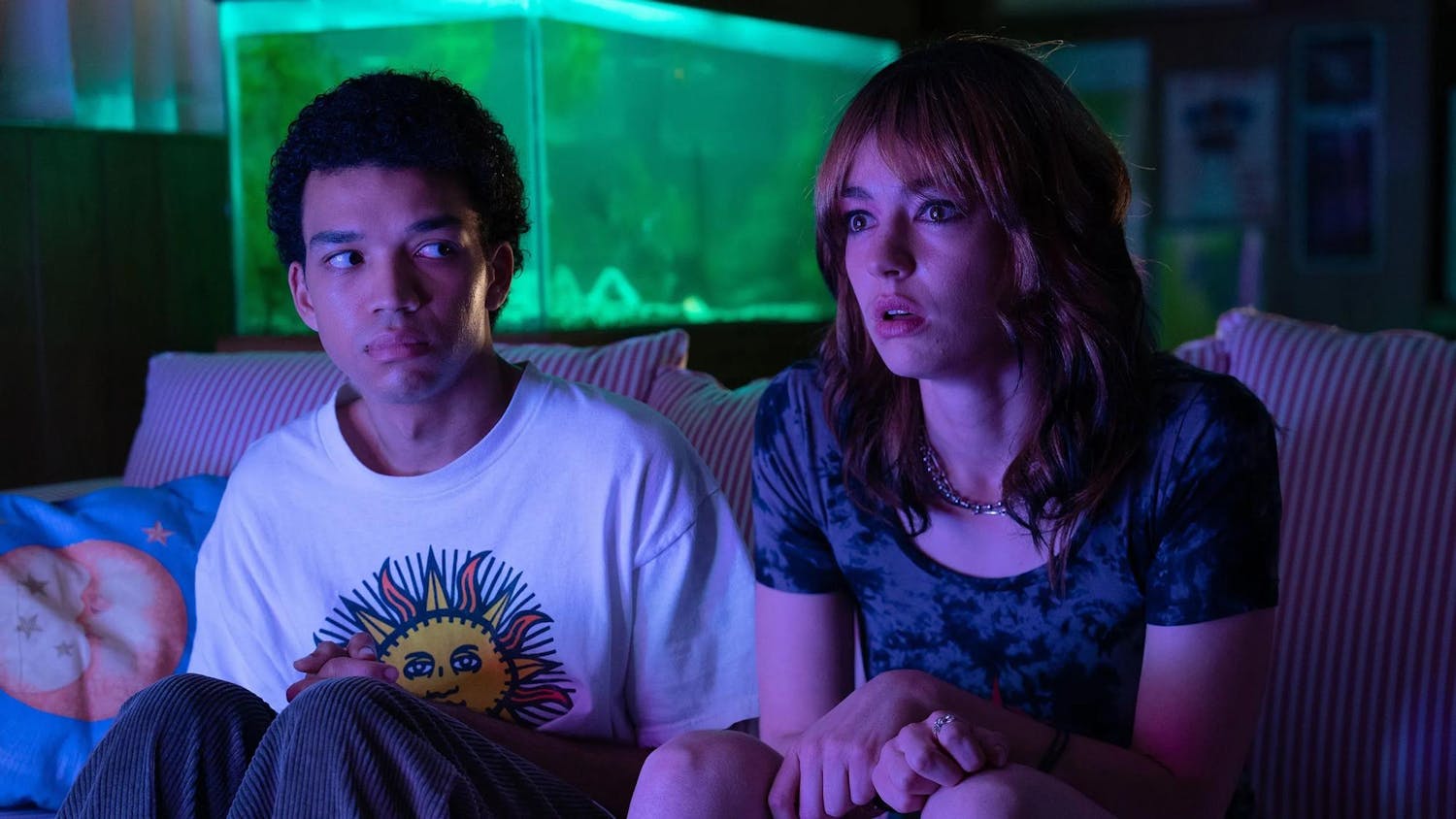John Dugdale, a blind photographer, discussed the significance of his photos with regards to the human condition in an event entitled “I Could Not See to See,” hosted by the Cogut Center for the Humanities Wednesday. The second-time event was organized by Associate Professor of English Jacques Khalip, Department Manager of the Cogut Center Kit Salisbury and Cogut Center Assistant Traude Kastner.
Dugdale, who identifies as gay, selected only photos taken in the 1990s and 2000s. The collection includes works from the onset of his blindness-inducing stroke and intense hospital treatment for HIV/AIDS through his spiritual reckoning with human mortality a decade later.
Dugdale began the talk with a quote from an Emily Dickinson poem: “Because I could not stop for death, he kindly stopped for me.” For Dugdale, the quote directly parallels his experiences with HIV and his loss of sight. To take a picture, Dugdale has someone else focus the camera and then presses the shutter button himself, he said.
Throughout his presentation, Dugdale recounted anecdotes to contextualize the intensely personal photographs. His first photograph “The Artist’s Mother,” depicts Dugdale and his mother embracing in an evocative, emotionally charged pose. His sister captured the photo while Dugdale was hospitalized, in a poignant moment when his mother told him simply, “put your head on my shoulder,” he said.
However personal each photo is to Dugdale, he also strives to capture the “universality” of the human condition within his work, he said. “The Artist’s Mother” became a contemporary “pieta” for mothers with children suffering from HIV, he explained.
Similarly, Dugdale cast his photograph “Sun God” as more broadly applicable, rather than only personal, in its artistic aims. The piece depicts a muscled, nude male in profile, grasping a bouquet of sunflowers. “These are my Greek pictures of sexuality and beauty and power,” he said.
Losing his sight allowed his experiences of the world to become “more important and more mystical and more beautiful,” he said. He returned “to being able to notice every bit of life,” another thematic thread within his works. For example, Dugdale’s still life photographs often center upon the small details of everyday life. His piece “Luminous Glass” focuses only on a small antique goblet glowing in the light due to its flecks of uranium.
In Dugdale’s words, photographic moments like these seem to be “written by the sun,” he said.
“I don’t feel like I take these pictures — I feel like they take themselves,” he added. He continued to describe the process as almost magical. “I have the idea, but it seems like some alchemy” through which the photos are taken, he said.
The presentation ended with a Walt Whitman quote of Dugdale’s choosing: “We affect each other without ever seeing each other, and never perhaps to see each other, is every bit as wonderful.”





